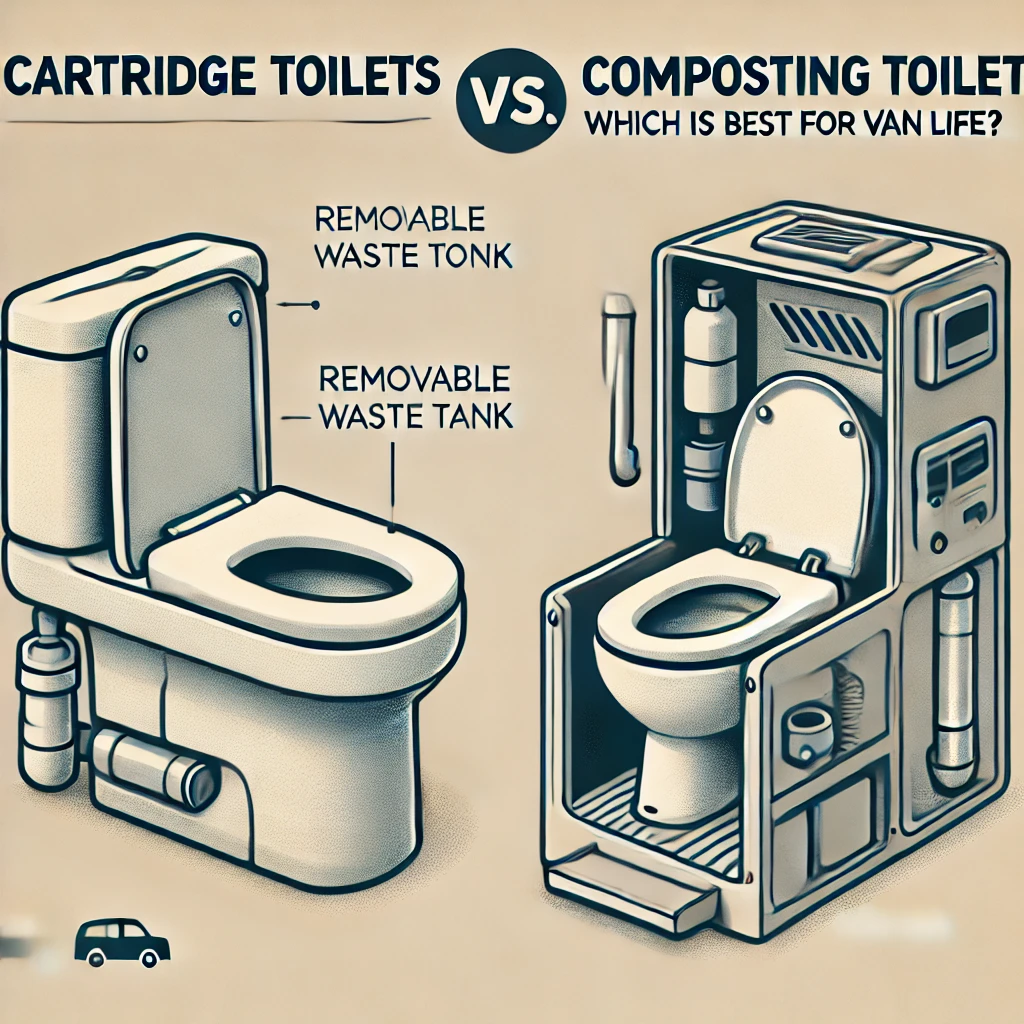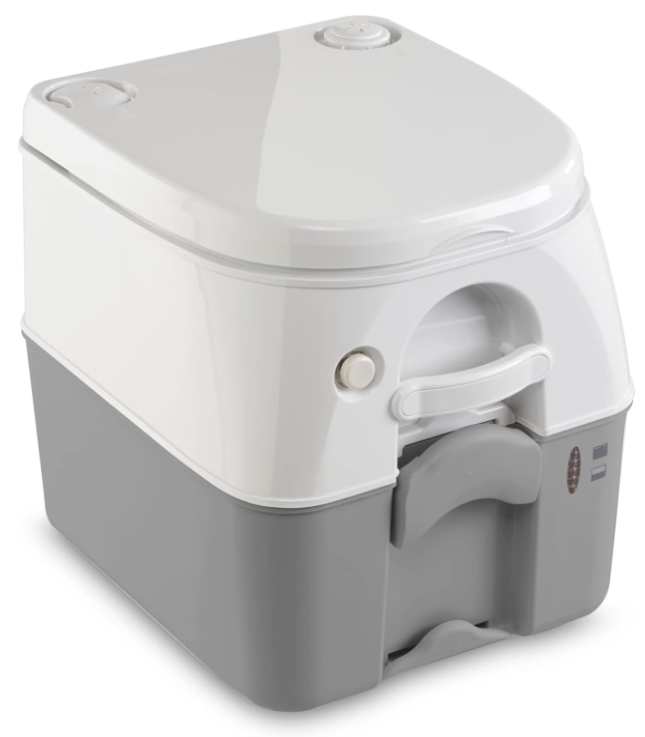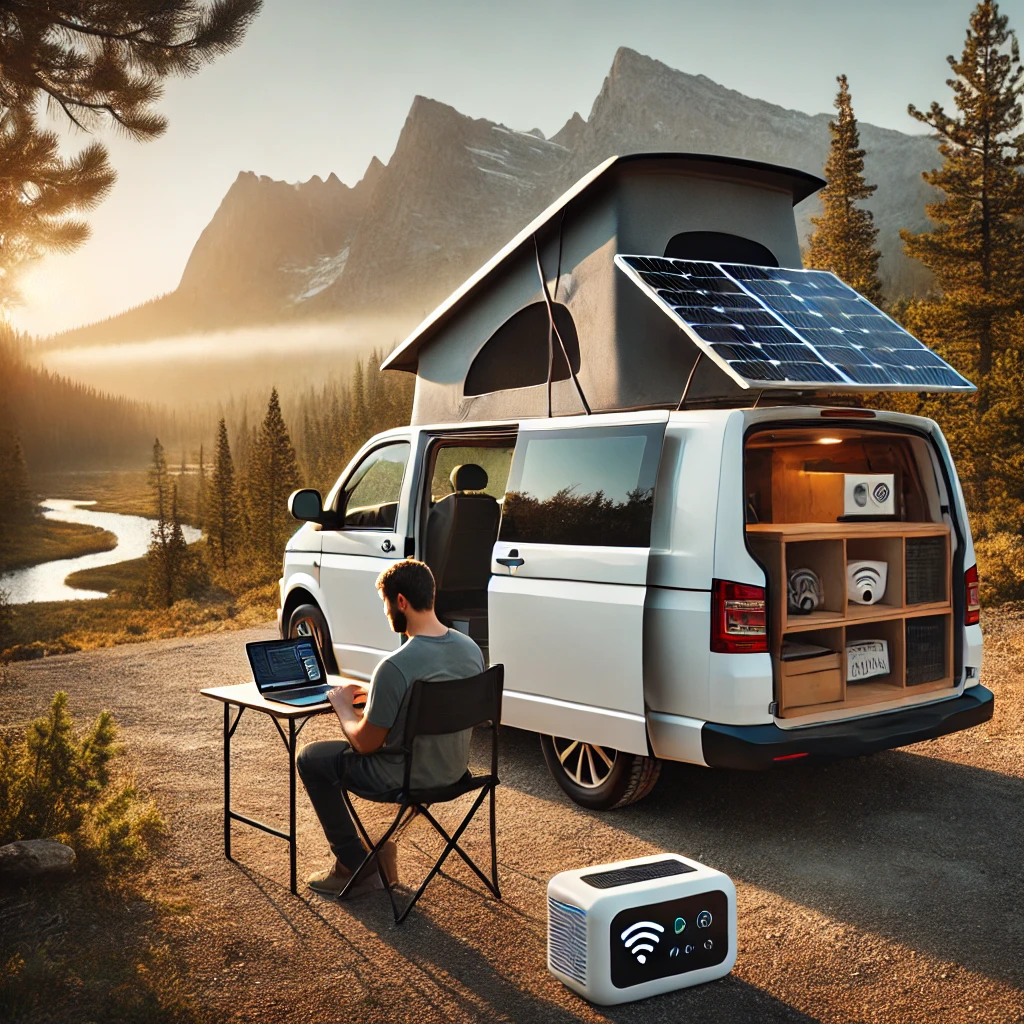Cartridge Toilets vs. Composting Toilets: Which is Best for Van Life?

Choosing between a cartridge toilet and a composting toilet can be tricky. Both types of van life toilets offer distinct advantages depending on your priorities, such as ease of use, environmental impact, and budget. In this post, we’ll compare the two categories to help you figure out which one is best suited for your van camper.
Overview of Cartridge Toilets:

Cartridge (or cassette) toilets are designed with a removable waste tank that you manually empty. They’re known for their simplicity and portability, making them a go-to choice for budget-conscious or part-time van lifers. Brands like Thetford, Dometic, and Camco offer popular models that vary in features like flush systems and tank size.
- Pros:
- Affordable, often priced between $100 and $200.
- Portable and easy to set up without any installation.
- Waste tanks are easy to remove and dump at designated facilities.
- Cons:
- Requires frequent emptying, especially with smaller tanks.
- Handling waste can be unpleasant for some users.
- Less eco-friendly, as there’s no composting involved.
Overview of Composting Toilets:

Composting toilets are waterless systems that separate liquid and solid waste. Solid waste is processed into compost over time, making this a more sustainable and eco-friendly choice for van life. Brands like Nature’s Head, Separett, and Sun-Mar offer composting toilets that are particularly suited for long-term, off-grid living.
- Pros:
- Environmentally friendly, turning waste into compost.
- Less frequent emptying, with solids typically requiring disposal every few months.
- No plumbing or water required.
- Cons:
- Higher upfront costs, typically ranging from $600 to $1,100.
- Requires venting and, often, installation of a urine drainage system.
- Larger and less portable than cartridge toilets.
Key Comparison Points:
Environmental Impact
- Cartridge Toilets: Less eco-friendly as waste is disposed of rather than composted. If sustainability is a priority, this could be a drawback.
- Composting Toilets: The best option for reducing your environmental footprint. Solid waste turns into compost, and there’s no need for water or chemicals.
Cost
- Cartridge Toilets: More budget-friendly with prices typically ranging from $100 to $200. However, you may spend more over time on chemicals or cleaning supplies.
- Composting Toilets: Higher upfront cost, generally between $600 and $1,100, but no ongoing expenses beyond the initial setup and occasional maintenance.
Ease of Use
- Cartridge Toilets: Easier to set up with no venting or complex installation required. The waste tank is removable, making it simple to empty, though this process must be done regularly.
- Composting Toilets: Requires a more involved installation process, including venting and possibly setting up a urine drain. Once installed, it requires less frequent maintenance than cartridge toilets.
Portability
- Cartridge Toilets: Extremely portable, making them perfect for those who move frequently or don’t want a permanent installation.
- Composting Toilets: Heavier and less portable, so they’re better suited for a more permanent setup in your van.
Odor Control
- Cartridge Toilets: Some models have good odor control, but regular emptying is necessary to avoid unpleasant smells.
- Composting Toilets: With proper ventilation and separation of liquids and solids, composting toilets offer excellent odor control, even during long-term use.
Side-by-Side Comparison Chart
| Feature | Cartridge Toilets | Composting Toilets |
|---|---|---|
| Price Range | $100 – $200 | $600 – $1,100 |
| Type | Portable, removable waste tank | Waterless, composts waste |
| Setup | No installation, easy setup | Requires venting and urine drain |
| Odor Control | Good, but requires regular emptying | Excellent with proper ventilation |
| Portability | Highly portable, easy to move | Less portable, better for permanent setup |
| Environmental Impact | Less eco-friendly, waste must be dumped | Eco-friendly, composts solid waste |
| Maintenance | Needs frequent emptying | Solids emptied every 2-3 months |
| Best For | Short trips, budget-conscious users | Full-time van life, eco-conscious users |
Which One is Right for You?
- Choose a Cartridge Toilet if you’re looking for a budget-friendly, portable option that’s easy to set up and maintain, but don’t mind frequent emptying. It’s great for short trips or occasional van life use.
- Choose a Composting Toilet if you want a long-term, sustainable solution that minimizes waste and requires less frequent maintenance. It’s ideal for full-time van life or those focused on eco-friendly living.
Check Price on Amazon for Cartridge Toilets. Check Price on Amazon for Composting Toilets.
As an Amazon Associate I earn from qualifying purchases.


